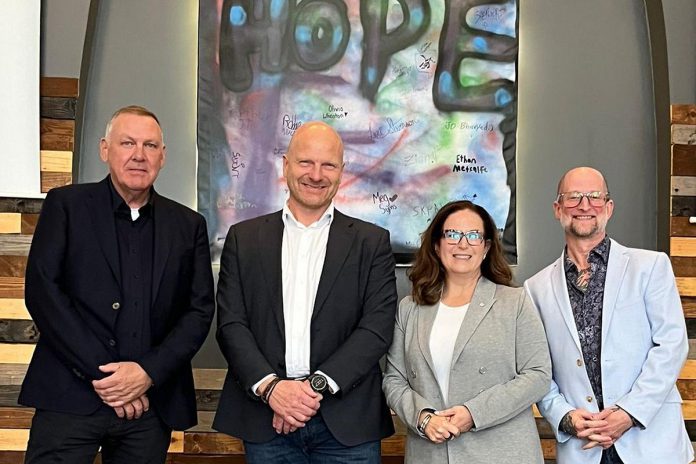
Amidst the pressing nationwide opioid epidemic, Peterborough Public Health (PPH) is receiving $125,000 in federal funding to target substance use prevention for the city’s younger citizens.
PPH said it is “excited” to be one of seven communities in the country recently selected by the Public Health Agency of Canada to begin implementing and adapting the Icelandic Prevention Model (IPM) for youth substance use prevention.
“Substance use harms, in particular the opioids crisis, is one of the most vexing issues of our time for our community of Peterborough,” said Dr. Thomas Piggott, PPH medical officer of health, in a statement. “Community collaboration through this important new grant will allow us to advance a more effective response to preventing youth substance use harms and improve health.”
The IPM has received international acclaim and attention for its collaborative approach to prevent substance use harms among youth, the Government of Canada noted. Developed by the Icelandic Centre for Social Research and Analysis (ICSRA), it applies a community-driven approach to influence risk and protective factors associated with substance use.
Studies of the IPM in Iceland show a population-level decline in youth substance use. Over a 10-year period, the studies show a 46 per cent reduction in the number of youth getting drunk in the past 30 days and a 60 per cent decline in the use of alcohol, tobacco, and cannabis. Since it originated, the ICSRA has expanded its work to more than 30 countries worldwide under the organization name of “Planet Youth.”
The model encompasses an evidence-based approach, using local data and assets to drive programming. From there, the community works together to address the specific needs identified and tackle root causes of substance use, a media release noted.
“Our community has a long history of collaborating for the betterment of our residents,” Dr. Piggott said. “We look forward to engaging with new and existing partners to focus on upstream causes of substance use.”
Peterborough’s health unit will receive $125,000 over 18 months for the Peterborough Youth Substance Use Prevention Pilot (PYSUPP). PPH said it expects to share more information about the project in the fall.
The Public Health Agency of Canada noted that “no community in Canada has been left untouched by substance use-related harms and the toxic illegal drug supply and overdose crisis.”
Ya’ara Saks, federal minister of mental health and addictions and associate minister of health, recently announced funding of more than $3.1 million under the Youth Substance Use Prevention Program (YSUPP) aimed to reduce substance use-related harms among young people in communities across Canada.
The $3.1 million investment includes $868,000 in funding for seven projects across British Columbia, Saskatchewan, Ontario, and Nova Scotia to support the implementation and adaptation of the IPM. In addition, Renison University College — an affiliated university college of the University of Waterloo and located in Waterloo — will receive $2.25 million in funding to lead a new knowledge development and exchange hub for youth substance use prevention that will provide guidance and training on the implementation of the IPM in Canada.
“We are working to address the root causes of substance use among youth and prevent harms before they begin,” Saks said.
“We know that connection to community supports helps to decrease and even prevent substance use-related harms. We owe it to young people – and all Canadians – to ensure there is equitable access to the mental health and substance use services that people need and these organizations will make a real difference for youth in their communities.”
The seven projects will engage members of diverse communities and sectors, including Indigenous, schools, service providers, community leaders and young people with lived and living experience, and will contribute to the evaluation of the IPM in the Canadian context, the release noted.
Meanwhile, the federal government’s 2024 budget proposes to provide $150 million over three years, starting in 2024-25, to Health Canada for an emergency treatment fund, open to municipalities and Indigenous communities to help provide rapid responses to emergent, critical needs related to the opioid crisis, the release noted.
Canada has seen “substantially elevated numbers of opioid-related deaths and other harms” since national surveillance began in 2016 by the Public Health Agency of Canada, the federal government noted.
“This public health crisis is having a tragic impact on people who use substances, their families, and communities across the country, and is shaped by a wide range of factors. The COVID-19 pandemic may have exacerbated the crisis, as several jurisdictions reported higher rates of fatal overdoses and other harms following the onset of the pandemic.”


























